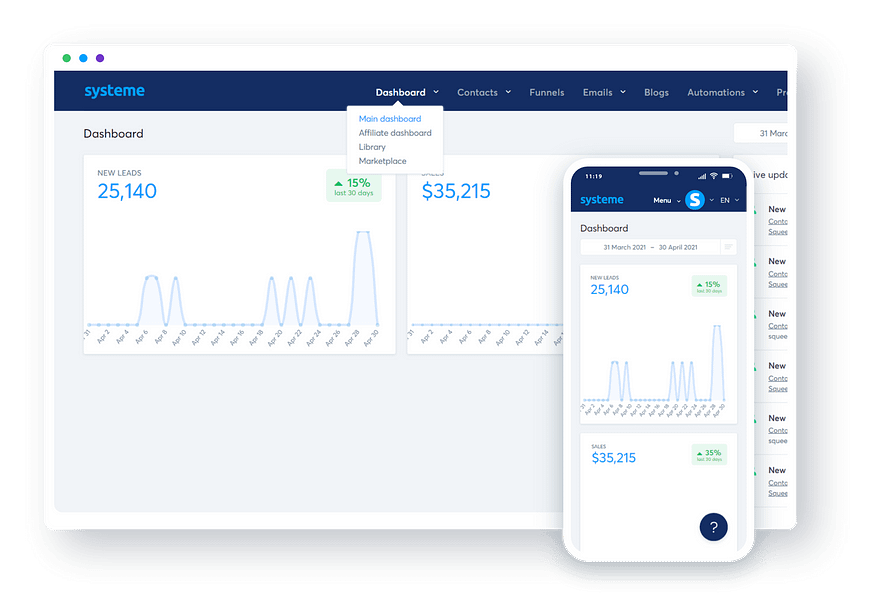
Creating sales funnels with Systeme.io is a straightforward process thanks to its user-friendly interface and comprehensive features. Here’s a step-by-step guide to help you get started:

#1. Sign Up and Log In
– Sign Up: If you don’t have an account, sign up on Systeme.io website.
– Log In: Once signed up, log in to your account.
#2. Create a New Funnel
– **Dashboard**: From your dashboard, click on the “Funnels” tab on the left-hand side.
– **New Funnel**: Click on the “Create” button to start a new funnel.
#3. Choose Funnel Type
– Objective: You’ll be prompted to choose the type of funnel you want to create. Options include building an audience, selling a product, running an evergreen webinar, custom funnel, etc.
– Select and Name: Select the funnel type that suits your objective and give it a name.
#4. Add Steps to Your Funnel
– Funnel Steps: After naming your funnel, you’ll need to add steps. Each step represents a page in your funnel (e.g., landing page, sales page, thank you page).
– Add Step: Click on “Add Step” and enter the step name and URL path.
#5. Design Your Pages
– Page Templates: Systeme.io — The only tool you need to launch your online business offers various templates for each type of page. Choose a template that matches your needs.
– Edit Pages: Use the drag-and-drop editor to customize your pages. You can add elements like text, images, videos, forms, and buttons. Customize colors, fonts, and layout to match your branding.
#6. Set Up Automation
– Email Marketing: Integrate your email marketing by setting up automated email sequences that trigger based on user actions (e.g., form submission, purchase).
– Rules and Workflows: Create automation rules and workflows to guide users through the funnel. For example, you can set up rules to send follow-up emails or assign tags based on user behavior.
#7. Configure Settings
– SEO Settings: Optimize your pages for search engines by adding SEO titles, descriptions, and keywords.
– Tracking: Add tracking codes (e.g., Google Analytics, Facebook Pixel) to your pages to monitor performance and gather insights.
#8. Test Your Funnel
– Preview: Preview each step of your funnel to ensure everything looks and functions correctly.
– Test: Go through the funnel as a user would to check for any issues and make sure all automations are working.
#9. Launch Your Funnel
– Go Live: Once you’re satisfied with your funnel, click “Publish” to make it live.
– Promote: Start driving traffic to your funnel through various marketing channels (e.g., social media, email marketing, paid ads).
Tips for Effective Funnels
– Clear Call-to-Actions (CTAs): Ensure that each page has clear and compelling CTAs to guide users through the funnel.
– A/B Testing: Continuously test different versions of your pages to see which performs better.
– Follow-Up: Use email marketing to follow up with leads and customers, nurturing them through the sales process.
Conclusion
Systeme.io offers a comprehensive and user-friendly platform for creating sales funnels. By following these steps, you can set up effective funnels to capture leads, make sales, and grow your online business. The drag-and-drop editor and extensive automation options make it easy for users of all levels to build professional and high-converting funnels.







